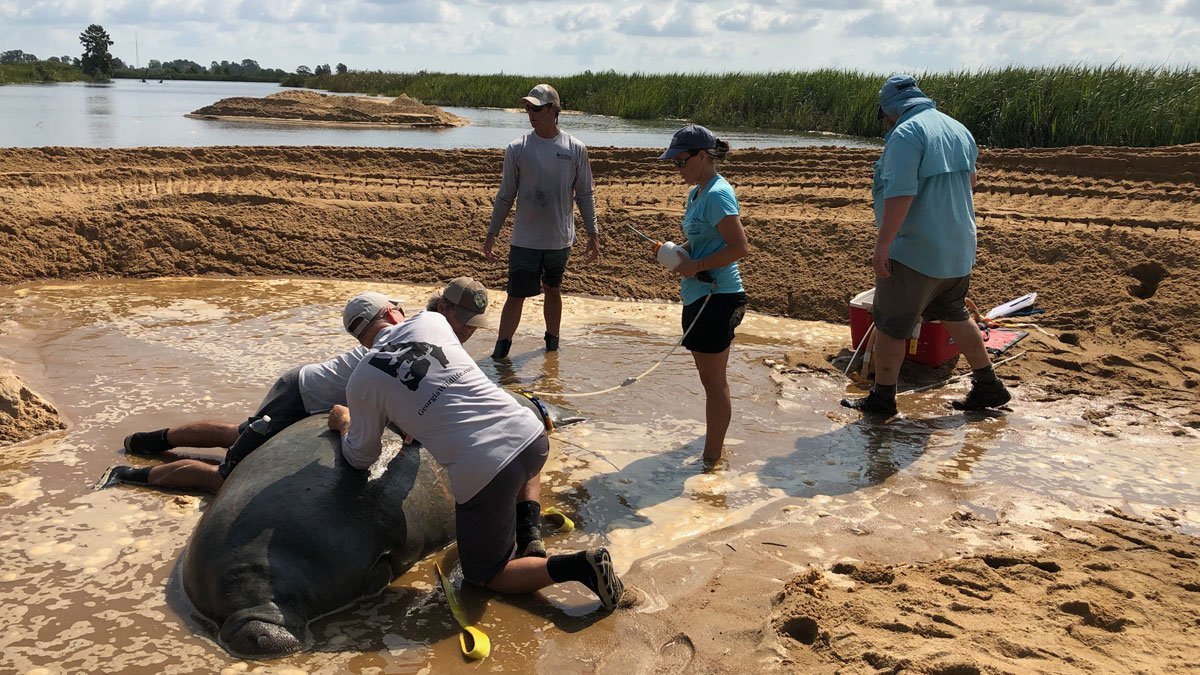CMA Manatee conservation specialists are providing the science and education to conserve the manatee and its habitat. Manatees have been a source of deep fascination for humans through the ages.
Learn about what we are doing to respond to the current Unusual Mortality Event affecting manatees in Florida and how you can help.

CMA Manatee Tracking
CMA Research Institute scientists are satellite tagging and tracking manatees in the USA to deepen our understanding of manatee movements, behavior, and habitat.

Tracking Manatees in Florida
CMA Research Institute staff have extensive experience tagging and tracking manatees in Florida and around the world. Satellite tracking is a tool researchers use to answer an array of questions. The ability to locate manatees in the wild and document their habitat use, movements, and behavior is invaluable.
We use tracking information to determine how manatees react to the loss of warm water habitat at power plants; the status and importance of foraging habitat; how and where manatees disperse to during migrations in the warmer months; site fidelity — in other words, do manatees return to the same locations year after year?

Tracking Manatees in Georgia
While CMA Research Institute is mainly focused on manatee research in Florida, we are very interested in manatees as they travel further afield during the warmer months. The number of manatee sightings outside Florida has increased over the past decade, as well as the distance of those sightings from Florida. This increased distribution may simply be a factor of increased awareness by citizens on how to spot and report manatee sightings, increased manatee population size, or it could also reflect changes in manatee habitat and/or human disturbance levels in Florida.
Tracked Manatees In Georgia
Help Support Manatee Conservation

Tracking Manatees in Alabama
CMA Research Institute has partnered with Dr. Ruth H. Carmichael and the Dauphin Island Sea Lab (DISL) to support a manatee research program in Mobile Bay, Alabama and nearby waters of the northern Gulf of Mexico. We are assisting Dr. Carmichael and her team by providing our manatee research experience as DISL builds the first manatee research initiative in Alabama
All manatee work was conducted under USFWS Research Permit #MA37808A
Making Waves
- 1600+ rescued sea turtles since 2010
- 2100+ Nests monitored since 2010
- 850+ Animals released since 2010
- 190K Volunteer Hours 2020-2021











